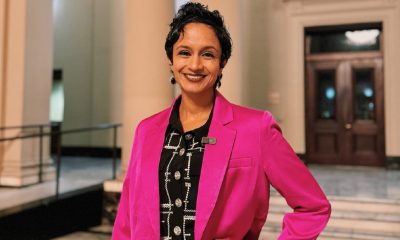Activism
The Rise East Project: Part 1 of 8 – Genesis of Oakland’s Black Cultural Zone and Rise East
The mission of the Black Panthers 10-point program, envisioned in 1966, germinated in 2000 at the first annual Malcolm Jazz Festival in San Antonio Park, hosted by Eastside Arts Alliance, a collective of multi-racial artists who, like Malcolm X, utilized the public platform to address racial inequities and organize a credible institution to create solutions.
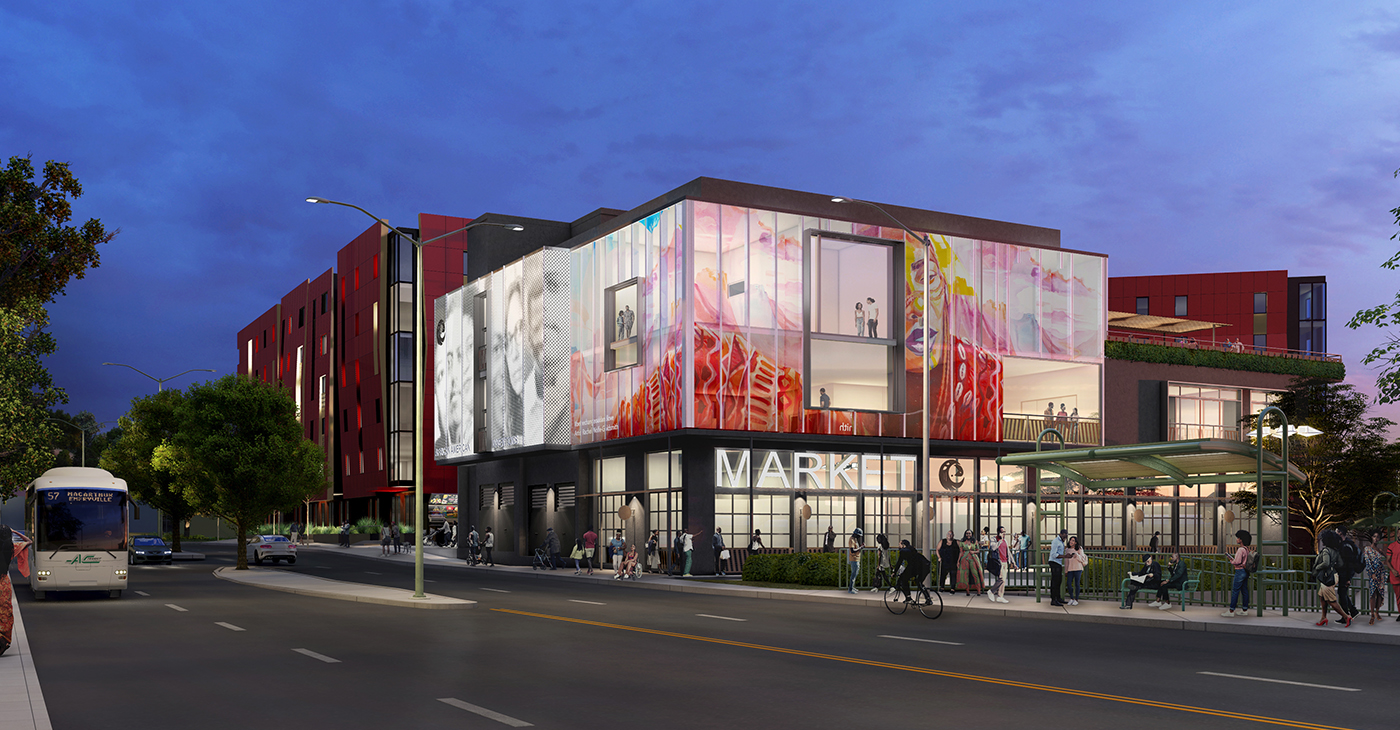
Rise East is a $100 million privately funded initiative that will rebuild Black neighborhoods in a 40 x 40 block area of East Oakland over 10 years. Project partners are Oakland Thrives, The 40 x 40 Council and Blue Meridian Partners.
By Tanya Dennis
The mission of the Black Panthers 10-point program, envisioned in 1966, germinated in 2000 at the first annual Malcolm Jazz Festival in San Antonio Park, hosted by Eastside Arts Alliance, a collective of multi-racial artists who, like Malcolm X, utilized the public platform to address racial inequities and organize a credible institution to create solutions.
Elena Serrano, an Eastside collective member who serves as its executive director says, “The Black Panthers captured hearts and minds through authentic guerrilla theater, inspiring people by how they presented themselves, dressing the same, on the same message making people believe they could create a society that benefited them.”
For nearly 30 years, Eastside Arts Alliance (EAA) has held down that Black Panther culture at 2277 International Blvd. and recently celebrated its 24th annual Malcolm X Festival.
“We created a Black arts movement in a neighborhood that is Black, Asian and Latinx, a movement where artists’ work and organizers come together to build power,” Serrano says. “We work with teenagers that want to be hip-hop stars, poets, and writers so they address power-building strategies in their music and words.”
The Black Cultural Zone, a strategic partner in the $10 million Rise East initiative credits their genesis to Eastside Arts Alliance. Rise East is a 10-year, privately funded initiative to help Black families thrive in a 40-square-block area of East Oakland.
“We connected to the Black Cultural Zone six or seven years ago when the Bus Rapid Transit (BRT) project was planned for International Boulevard, a project to improve rapid transit,” Serrano says. “BRT publicity was showing beautiful neighborhoods that didn’t even have Black folks in the picture. A concerned group, OSNI (Oakland Sustainable Neighborhood Initiative), pushed back saying they would love development, but development without displacement.”
EAA later joined that fight, urging that people need to have power over policy and jobs. “We put forth the neighborhood concept of cultural centers and space where neighborhoods come together to build power and decide how they can use their power with a cultural space where they can dream and plan, and that’s how the cultural zone got started.”
Carolyn Johnson, director of the Black Cultural Zone, was working for the Northern California Community Fund as a lender during the dot-com boom in San Francisco and Silicon Valley the late 1990s. Awash in venture capital, high-salaried workers were looking for places to live.
Able to afford more in a competitive market, dot-commers’ need for housing drove up rent prices and home prices in the East Bay. Johnson observed the impact of that boom with people coming over to Oakland to buy up property, setting off gentrification that would result in Black people displacement.
When BRT was approved in 2008, Johnson, aware of the history of infrastructure projects that gentrify and displace Black people, bought a building on a commercial corridor, acknowledging the need for a Black Cultural Zone in Oakland.
From 2010 thru 2014, Roots, another Rise East member, talked to the Black Cultural Zone about purchasing the Safeway building located at 5701 International Blvd. (East 14th Street at the time), with the intent to develop a large campus, ROOTS Community Health Center, as a part of the collaborative’s 40 blocks by 40 blocks project, a geographical area they wanted to focus on.
The building purchase did not pan out, but the beginning of a coalition that brought Allen Temple Baptist Church, the East Oakland Collective, Just Cities, East Oakland Building Healthy Communities into the mix to develop the 10-year program that started in 2013.
The California Endowment funded many of the organizations in the collaborative from 2014-16, driven by the need to help the collaborative secure real estate, address Black health and wellness, provide quality education, Black arts and culture, establish economic place-keeping, build a strong Black economy, and increase the quality of life for Black folks.
“Our initiative came to national attention while we were calling on local private funders to make strategic investments in the 40 by 40 project, an investment to restore the community that Blacks were redlined into for 40 years,” Johnson says. “Generally, the way that capital is being distributed, what we’re hearing is that it’s time for us to leave, and we’re saying no! We’re appreciative that Rise East will help catalyze our determination to stay deeply rooted in Oakland.”
Activism
Oakland Post: Week of February 19 – 25, 2025
The printed Weekly Edition of the Oakland Post: Week of February 19 – 25, 2025
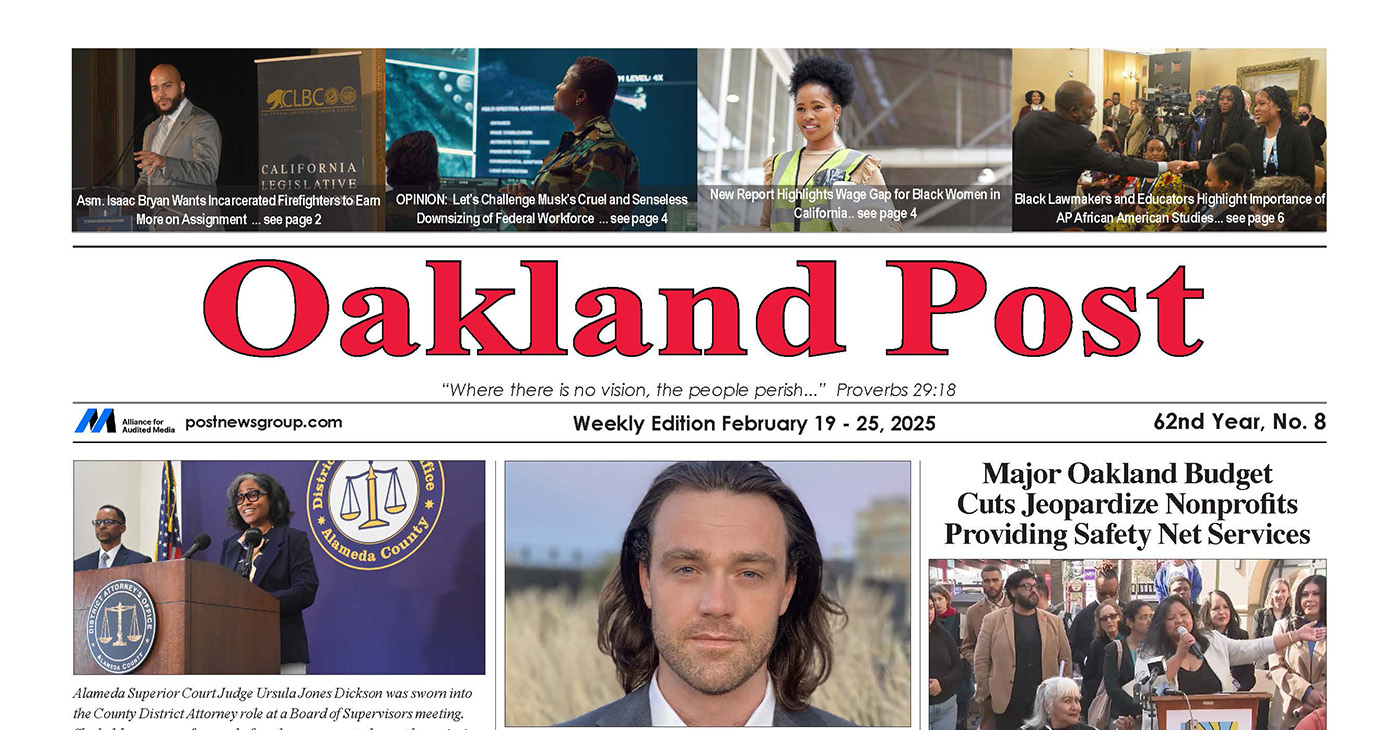
To enlarge your view of this issue, use the slider, magnifying glass icon or full page icon in the lower right corner of the browser window.
Activism
U.S. House Minority Leader Hakeem Jeffries and Rep. Lateefah Simon to Speak at Elihu Harris Lecture Series
The popular lecture series is co-produced by the Oakland-based Martin Luther King Jr. Freedom Center and Peralta Community College District. Jeffries’ appearance marks the 32nd lecture of the Barbara Lee and Elihu Harris Lecture Series, which has provided thousands of individuals with accessible, free, high-quality information.
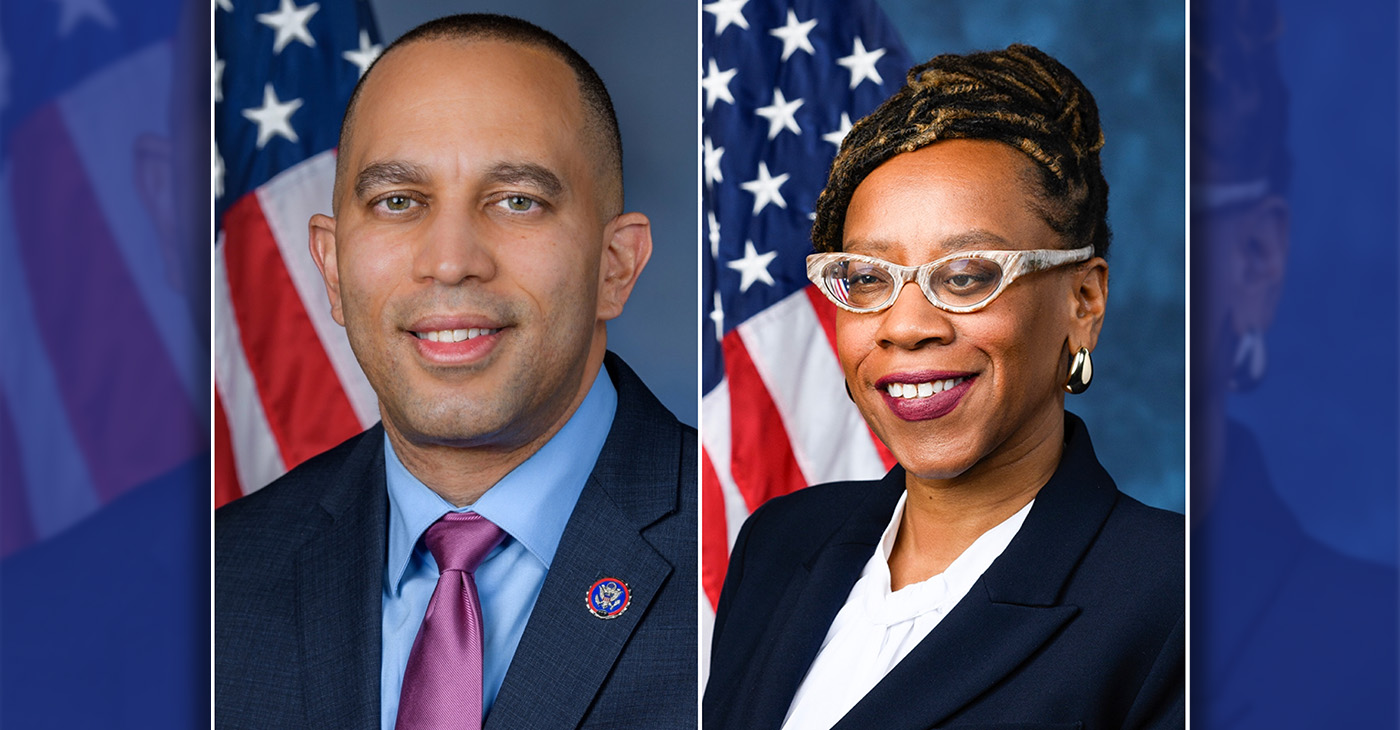
By Scott Horton
United States House of Representatives Minority Leader Hakeem Jeffries (D-NY-8) will be a speaker at the Barbara Lee and Elihu Harris Lecture Series on Friday, Feb. 21.
The event will be held at the Henry J. Kaiser Center for the Arts, 10 Tenth Street in Oakland, at 7 p.m.
The popular lecture series is co-produced by the Oakland-based Martin Luther King Jr. Freedom Center and Peralta Community College District. Jeffries’ appearance marks the 32nd lecture of the Barbara Lee and Elihu Harris Lecture Series, which has provided thousands of individuals with accessible, free, high-quality information.
The overarching goal of the lecture series is to provide speakers from diverse backgrounds a platform to offer their answers to Dr. King’s urgent question, which is also the title of Jeffries’ latest book: “Where do we go from here: Chaos or Community?”
In addition to Jeffries, Congresswoman Lateefah Simon (D-CA-12) will also speak.
“Certainly, now is a time for humanity, in general, and Americans in particular to honestly and genuinely answer Dr. King’s question,” said Dr. Roy D. Wilson, Executive Director of the Martin Luther King Jr. Freedom Center and Executive Producer of the lecture series.
“Dr. King teaches that time is neutral but not static. Like the water in a river, it arrives and then quickly moves on,” continued Wilson. “We must urgently create conditions for listening to many different answers to this vital question, and generate the development of unity of action among all those who struggle for a stronger democracy.”
In his book, Jeffries shares his experience of being unanimously elected by his colleagues as the first African American in history to ever hold the position of House Minority Leader.
In January 2023 in Washington, Jeffries made his first official speech as House Minority Leader. He affirmed Democratic values one letter of the alphabet at a time. His words and how he framed them as the alphabet caught the attention of Americans, and the speech was later turned into a book, The ABCs of Democracy, bringing Congressman Jeffries rousing speech to vivid, colorful life, including illustrations by Shaniya Carrington. The speech and book are inspiring and urgent as a timeless reminder of what it means to be a country with equal opportunities for all. Jeffries paints a road map for a brighter American future and warns of the perils of taking a different path.
Before his colleagues unanimously elected him Minority Leader in 2022, Jeffries previously served as Chair of the House Democratic Caucus and as an Impeachment Manager during the first Senate trial of the 45th President of the United States.
Jeffries was born in Brooklyn Hospital, raised in Crown Heights, grew up in the Cornerstone Baptist Church and he is a product of New York City’s public school system, graduating from Midwood High School. Jefferies went on to Binghamton University (BA), Georgetown University (master’s in public policy) and New York University (JD).
He served in the New York State Assembly from 2007 to 2012.
Admission is free for the Feb. 21 Barbara Lee and Elihu Harris Lecture Series featuring Congressman Jeffries. Please reserve seats by calling the Martin Luther King Jr. Freedom Center at (510) 434-3988.
Signed copies of his book will be available for purchase at the event.
Activism
Actor, Philanthropist Blair Underwood Visits Bay Area, Kicks Off Literacy Program in ‘New Oakland’ Initiative
These community activations were coordinated with the San Francisco-based non-profit program “Room to Read.” Ray said he is also donating his time to read and take pictures with students to encourage their engagement and to inspire them to read more. The inspirational book “Clifford Ray Saves the Day” highlights Clifford Ray’s true story of saving a dolphin.
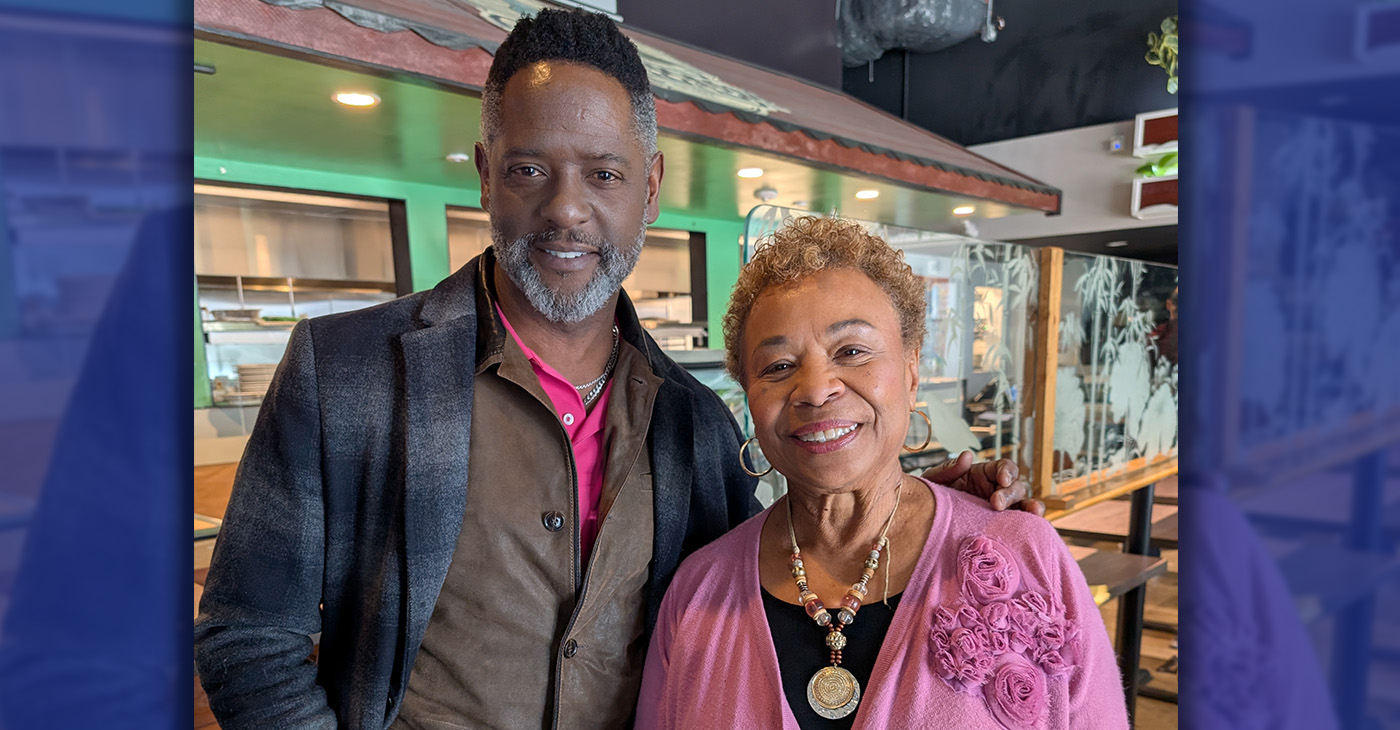
By Paul Cobb
New Oakland Series
Opinion Part 3
The Post mentioned three weeks ago that a number of our local luminaries were coming together to support the “New Oakland” movement. As this current national administration continues to eliminate our “legacy” institutional policies and programs left and right, most communities find themselves beyond “frozen” in fear.
Well, esteemed actor, long-time Bay Area supporter, and philanthropist Blair Underwood returned to Oakland this week to speak with city leaders, community trust agents, students, the Oakland Post, and local celebrities alike to continue his “New Oakland” initiative.
This week, he kicked off his “Guess Who’s Coming to Read” literacy program in some of Oakland’s middle schools. Clifford Ray, who played the center position of the 1975 World Champion Golden State Warriors, donated close to 1,000 books. Ray’s fellow teammate Charles “The Hopper” Dudley also gave Converse sneakers to students.
These community activations were coordinated with the San Francisco-based non-profit program “Room to Read.” Ray said he is also donating his time to read and take pictures with students to encourage their engagement and to inspire them to read more. The inspirational book “Clifford Ray Saves the Day” highlights Clifford Ray’s true story of saving a dolphin.
Underwood also spent quality time with the Oakland Ballers ownership group and visited the amazing Raimondi Park West Oakland community revitalization site. In the 1996 TV film Soul of the Game, Underwood played the role of the legendary first Black Major League Baseball player Jackie Robinson and commended the Ballers owners.
“This group of sports enthusiasts/ philanthropists needs to be applauded for their human capital investment and their financial capital investment,” Underwood said. “Truly putting their money and passion to work,” Underwood said.
Underwood was also inspired by mayoral candidate Barbara Lee’s open-minded invitation to bring public-private partnership opportunities to Oakland.
Underwood said he wants to “reinforce the importance of ‘collaborative activism’ among those most marginalized by non-empathic leadership. We must ‘act out’ our discomfort with passionate intentions to create healthy change.”
-
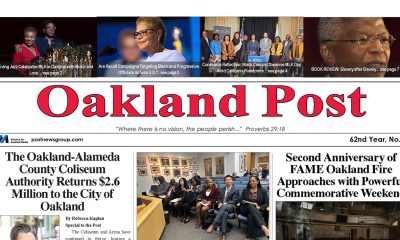
 Activism4 weeks ago
Activism4 weeks agoOakland Post: Week of January 22 – 28, 2025
-

 Activism4 weeks ago
Activism4 weeks agoOakland Poll: Tell Us What You Think About the Cost of Groceries in Oakland
-

 #NNPA BlackPress3 weeks ago
#NNPA BlackPress3 weeks agoPRESS ROOM: Top Climate Organizations React to Trump’s Executive Orders Attacking Health, Environment, Climate and Clean Energy Jobs
-
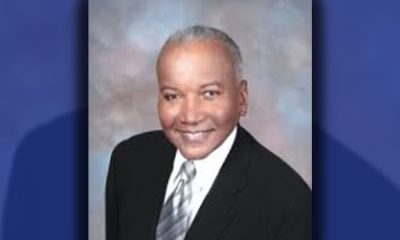
 Activism3 weeks ago
Activism3 weeks agoOP-ED: Like Physicians, U.S. Health Institutions Must ‘First, Do No Harm’
-
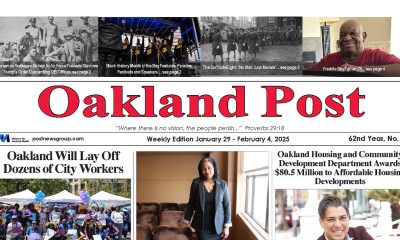
 Activism3 weeks ago
Activism3 weeks agoOakland Post: Week of January 29 – February 4, 2025
-

 #NNPA BlackPress4 weeks ago
#NNPA BlackPress4 weeks agoTrump Exploits Tragedy to Push Racist and Partisan Attacks
-

 #NNPA BlackPress4 weeks ago
#NNPA BlackPress4 weeks agoBlack Reaction to Trump DEI Blame on The Plane Crash
-

 #NNPA BlackPress4 weeks ago
#NNPA BlackPress4 weeks agoBLACK HISTORY MONTH 2025 We Proclaim It









